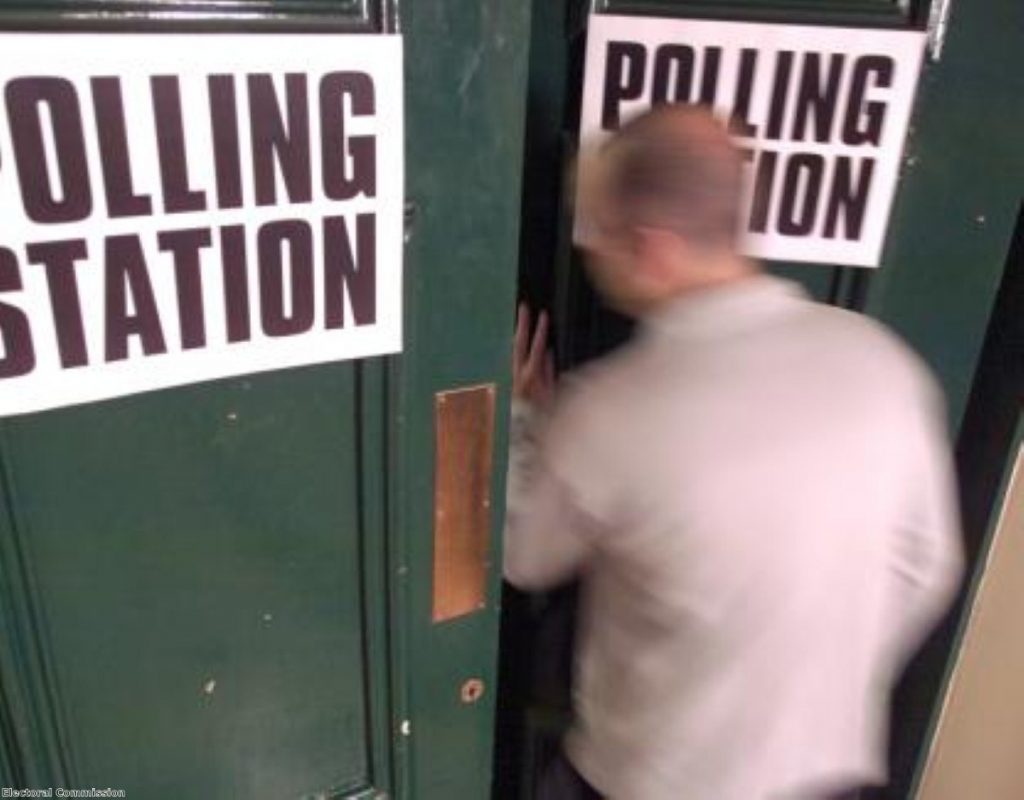Why you can afford to ignore the European elections
A surge in Ukip support at the European elections next month is unlikely to translate into seats for the eurosceptic party, according to new research.
An assessment of European and general election results by the think tank British Future branded the event an "outlier election" which will do little to indicate performance in the general election which follows.
"European election this May is Ukip's World Cup Final. For many of their supporters it's one of the most important events of the year," British Future director Sunder Katwala said.
"For the British public as a whole, however, they're far less important – more like the Eurovision song contest than a general election.


"Since 1999, almost all European elections have favoured 'outsider' parties, those with no representation at Westminster. Yet this support then crumbles at the next general election.
"We're not saying the European elections don’t matter – just that they’re a very poor guide to the general election that will follow next year."
The report found that the European elections attract a smaller, different electorate, which favours non-Westminster 'outsider' parties.
Fifteen million general election voters do not bother to go to the polling station for the European polls and those who do are typically older, whiter and more eurosceptic than general election voters.
Parties without a Commons seats have averaged a joint share of 24% of the European vote since 1999, but only four per cent of the general election vote.
Ukip can expect to win 25-30% of the vote in May, totaling between 2.7 and 4.5 million votes. But past performances suggest they will then shed over 60% of that support at the 2015 general election.
This inflicts a 'double hit' as Ukip loses around 2.7 million votes while turnout doubles from around 15 million to 30 million.
This gives them just five to six per cent of the general election vote, which is unlikely to be enough to secure a seat.
Mainstream Westminster parties will see the opposite trend.
The Conservatives will add around 13% to their European election result, meaning that 23% support in May would translate into enough support in 2015 for the party to secure a narrow victory.
Labour tends to add six to eight per cent to their European score, meaning Ed Miliband will be aiming to match the Tories 28% result from 2009 if he wants a shot at Downing Street.
.
The survey also found that voters typically are not interested in the European elections, but that those who are tend to be eurosceptic.
Asked which 2014 events mattered most to them by Ipsos Mori, the general public was twice as likely to choose the World Cup than the European elections.
But for Ukip supporters this was the other way round, with the European elections seen as more important than the world's biggest sporting event.
The survey comes on the same day as a poll found 38% of voters thought Nigel Farage posed a "danger to Britain".
Ahead of a second head-to-head debate with Nick Clegg tomorrow, the ComRes poll for Mail Online found many voters had been alarmed by Farage's praise for Russian president Vladimir Putin.
Asked in a GQ interview which current world leader he admired most, Farage replied: "As an operator, but not as a human being, I would say Putin. The way he played the whole Syria thing. Brilliant."
He later said: "I said I don't like him, I wouldn't trust him, wouldn't want to live in his country.
"But compared with the kids who run foreign policy in this country I have got more respect for him than our lot."












